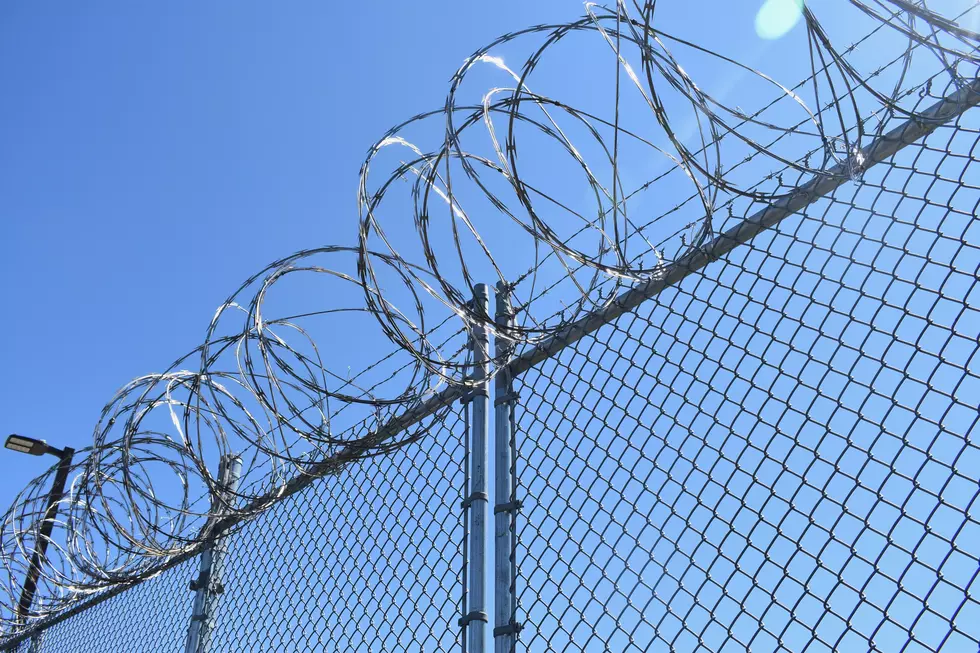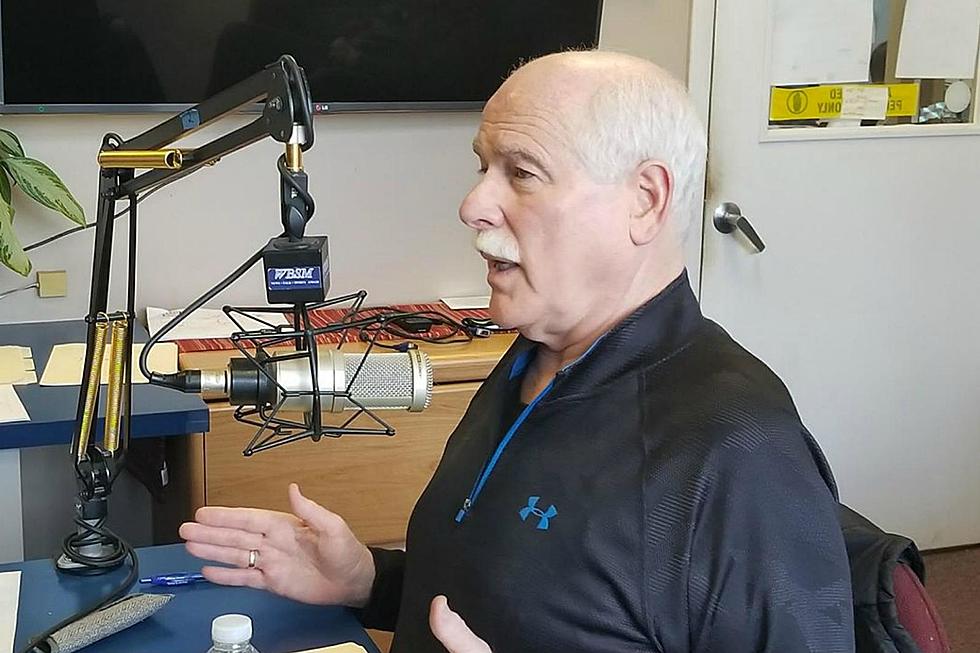
Hodgson, Cabral Square Off Before Judiciary Committee
BOSTON (State House News Service) — A shared interest in preserving public safety fueled the arguments made Monday for and against legislation that would prohibit the use of state resources to enforce immigration law through certain types of partnerships between state and federal agencies.
Testifying before the Judiciary Committee during an at-time heated hearing, backers of Rep. Antonio Cabral's bill to prohibit the use of state resources for so-called 287(g) agreements -- which delegate Immigration and Customs Enforcement authority to officers at the state or local level -- said the deals can leave immigrants afraid of local police and reluctant to come forward if they need help.
"There are a lot of people who sit in fear in their homes just being afraid to see or be seen by a local law enforcement official, and these kind of 287(g) agreements are making this fear substantive, and that kind of fear is deadly," said Dr. Lara Jirmanus, a physician testifying on behalf of the Greater Boston Health and Law Immigrant Solidarity Network. "That very kind of fear, fear of local police collaboration with immigration enforcement, translates into fear of all public institutions and is gripping our neighborhoods, clinics, schools and hospitals at this very moment."
In Massachusetts, the sheriffs of Bristol and Plymouth counties and the state Department of Correction have signed such agreements, though their officers have not yet received the training necessary to carry them out. Bristol Sheriff Thomas Hodgson has been a vocal critic of the bill (H-3033), along with another filed by Cabral that would restrict the use of inmate labor on out-of-state projects (H-3034).
Hodgson in January proposed the idea of sending inmates to help build President Donald Trump's proposed wall along the border with Mexico as part of a broader project to contribute to infrastructure and disaster relief projects.
Hodgson told the committee the delegated immigration enforcement authority would only apply to his correction officers within the jail and that his staff "does not go around rounding people up." He said passing Cabral's bill would restrict the ability of different levels of law enforcement to work together.
"If you didn't learn anything after 9/11, and apparently a lot of these people didn't, it was that we needed to strengthen our partnerships with one another in law enforcement to make sure we have every possible tool in our toolbox to keep people safe," Hodgson told reporters during a break in the hours-long hearing. "That's our charge, that's the charge of our Legislature, and I expect that the people in this community, this state, as well as states across the country, the majority of them get it."
Hodgson spoke with WBSM News after the his testimony, and said he felt the problem was that Rep. Cabral did not understand what the 287(g) program or the pledge to send inmates to build the wall are all about.
"It was obvious that he didn't understand the program, because he couldn't answer the questions," Hodgson said. "There were a lot of advocacy groups there, but I think the committee clearly understood what most people in the country understand, and certainly in the Commonwealth, that we need to work with our federal partners."
The sheriff said the program won't actually cost any state money, because the money to run it would come from federal dollars Hodgson receives for his department.
"It won't cost any money," he said. "We brought in $44 million on our detention program of federal money, and after expenses, the state actually profited. The state took that money from us and put it into the general fund, a total of about $37 millon."
Hodgson made national news in March when he told a Congressional subcommittee that local officials in "sanctuary" municipalities that don't cooperate with federal immigration enforcement should be arrested, and criticized Brockton Rep. Michelle DuBois' Facebook post warning of a potential ICE raid in her city.
DuBois testified in support of Cabral's legislation, saying restricting 287(g) agreements would still allow other partnerships between local and federal officials.
"We shouldn't mix the two," she said. "It's like making a firefighter a police officer as well."
Cabral, a New Bedford Democrat, said the main issue driving his bills is his belief that administration of federal programs is not an appropriate use of state dollars.
"This is not a debate about immigration here," he said. "This is about state dollars, and state dollars ought to be used for state programs. Period."
The bills, however, have become a part of the discussion around how Beacon Hill should address federal immigration policies. A working group of senior House Democrats convened by Speaker Robert DeLeo to guide the body's response to Trump threw its support last month behind both of Cabral's bills.
Rep. Denise Provost, a Somerville Democrat, told the Judiciary Committee that although 287(g) agreements have existed for years, there has been a "different tenor" around immigration under Trump, creating a "heightened level of concern."
"I think that there is real concern about the lawlessness which has been introduced into immigration policy under the current administration that has resulted in many lawsuits, applications for injunctive relief," she said. "I think that kind of a sentiment at the top gets communicated down through the ranks."
Carlos Hernandez, a Saugus Republican who says he is exploring a run against U.S. Rep. Seth Moulton, told the committee that state government "must start protecting the American citizens and the legal residents, and the legal permanent residents in Massachusetts." He referenced the presence of the international gang MS-13 in parts of the state.
"They should be working with ICE," he said of local law enforcement. "They should be working with federal government to uphold the law. How many people have to die, Americans, citizens and permanent residents, have to die?"
Hodgson said the safety of a community "isn't measured in dollars and cents" and cautioned that it may be measured "in grieving families" if the bill passes.
Several supporters of the bill made financial arguments against using state resources for federal partnerships.
"At a time of significant challenges in balancing the state budget, I believe it is not appropriate to use scarce state funds to enforce federal immigration laws, for which federal authorities should be responsible," Senate President Stanley Rosenberg wrote to the Judiciary Committee Monday.
Asked about his stance on Cabral's bills Monday afternoon, DeLeo said he thinks "there's going to be some room for discussion for that legislation."
Gov. Charlie Baker said he would prefer to see inmate labor used on projects within Massachusetts and that he believes it is important for state and local law enforcement "to do what we can to make sure we get violent, dangerous criminals off our street."
"I don't think, frankly, there's disagreement around that question when it comes to detainers and to ICE, and as long as the conversation's about that, I think that's one we should support," Baker told reporters.
More From WBSM-AM/AM 1420





![An Historic Moment for SouthCoast and National Labor [OPINION]](http://townsquare.media/site/518/files/2021/05/USW-1357.jpeg?w=980&q=75)
![Cabral: Massachusetts Sheriffs Must Stop Doing ICE’s Bidding [OPINION]](http://townsquare.media/site/518/files/2020/09/Hodgson-Cabral.jpg?w=980&q=75)
![Biden Writes Off Dartmouth Lockup [PHIL-OSOPHY]](http://townsquare.media/site/518/files/2020/10/DSC_0154.jpeg?w=980&q=75)

